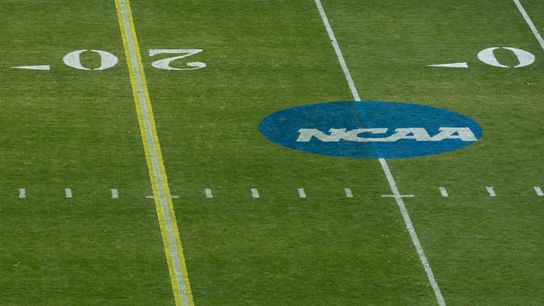The massive FBI case against college basketball has already led to important reforms within the NCAA on how it handles the draft process and investigations.
On the basketball front, players will now be allowed to have agents and retain their NCAA eligibility. Any high school player "identified as an elite prospect by USA Basketball" and any active college player that requests an evaluation by the NBA's draft advisory committee can hire an agent -- and allow that agent to pay for meals, transportation and lodging associated with the draft process -- as long as the agreement is terminated if and when the player returns to school.
In short: an active college basketball player will be allowed to declare for the NBA Draft, hire an agent, go unselected and then return to school like nothing ever happened.
On top of that, schools will be required to pay for the education of all players who spend at least two years in school before leaving.
From the NCAA:
Division I schools will be required to pay for tuition, fees and books for basketball players who leave school and return later to the same school to earn their degree. Former student-athletes will be eligible for financial assistance to complete their first degree if they were on scholarship and fewer than 10 years have passed since they left school. Additionally, students must have been in school for two years before leaving. Former student-athletes also must meet all the school’s admissions and financial aid requirements and must have exhausted all other funding options to be eligible, as well as meet all NCAA academic requirements.
While these rules are basketball-specific right now, the record for underclassmen who declare for the NFL Draft seems to be shattered year after year. How long until a similar push comes to the gridiron, and how would that process reconcile with the fact the NFL Draft occurs months after Signing Day?
In another massive change that will affect football, the NCAA has overhauled how it handles its investigative and punishment processes.
Basically, rather than conduct its own investigation, the NCAA can now co-opt facts gleaned from other investigations -- i.e., the ongoing FBI probe into college basketball, or the NCAA's ongoing investigation into Baylor football. Athletics staff all the way up to university presidents must now, as a term of employment, contractually commit to cooperate with the investigation and infractions process.
The NCAA will now create a collaborative punishment system, where the NCAA and the schools will collaborate rather than work as adversaries.
From the NCAA:
When schools and NCAA staff agree on the facts of a case, they can work together on a resolution, including appropriate penalties, if any. This change will reduce legal fees and minimize drawn-out adversarial situations. Agreed-upon resolutions must be approved by the NCAA Division I Committee on Infractions.
And, finally, the NCAA is upping the punishments for rule-breakers. Again from the NCAA:
University presidents and chancellors will be personally accountable for their athletics program following the rules. Presidents and chancellors join all athletics staff in personally affirming the athletics program meets obligations for monitoring rules compliance, which is required to be eligible for the postseason. Also, schools are required to cooperate fully during NCAA investigations and take appropriate corrective action. Those who break rules face stronger penalties, including longer postseason bans, longer head coach suspensions, increased recruiting restrictions and additional fines.
Those who break rules face stronger penalties, including longer postseason bans, longer head coach suspensions, increased recruiting restrictions and additional fines.
The NCAA has created a landing page for all of the announced changes, which can be found here.
